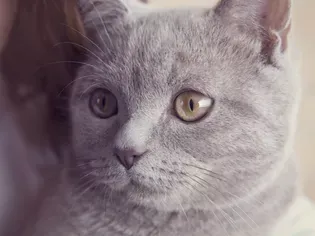Bronchitis in Cats
Updated on 05/26/24

Feline Bronchitis: A Comprehensive Guide to Causes, Symptoms, and Treatment for Cat Owners
Introduction
Bronchitis, an inflammation of the bronchial tubes, is a common respiratory condition affecting cats. While it can be a temporary ailment, chronic bronchitis can lead to serious health issues if left untreated. Understanding the causes, symptoms, and treatment options for bronchitis is crucial for responsible cat owners. This comprehensive guide will provide you with all the essential information to help you care for your feline companion.
Causes of Bronchitis in Cats
Bronchitis in cats can be caused by various factors, including:
* Viral infections, such as feline herpesvirus and feline calicivirus
* Bacterial infections, including Bordetella bronchiseptica and Mycoplasma haemofelis
* Irritants, such as smoke, dust, and chemicals
* Allergies to pollen, mold, or other allergens
* Foreign bodies, such as grass blades or pieces of toys
* Heart disease, which can cause fluid to accumulate in the lungs and lead to bronchitis
* Parasites, such as lungworms
Symptoms and Signs of Bronchitis in Cats
Bronchitis can manifest in a variety of symptoms, including:
* Coughing, which can be dry, hacking, or productive
* Wheezing
* Difficulty breathing
* Lethargy
* Loss of appetite
* Nasal discharge
* Fever
Diagnosis and Treatment of Bronchitis in Cats
If you suspect your cat has bronchitis, it's essential to consult with your veterinarian. They will perform a physical exam, listen to your cat's lungs, and possibly take chest X-rays or blood tests to confirm the diagnosis.
Treatment for bronchitis depends on the underlying cause and may include:
* Antibiotics, if the cause is bacterial
* Antiviral medications, if the cause is viral
* Bronchodilators, to open up the airways
* Expectorants, to help cats cough up mucus
* Oxygen therapy, in severe cases
* Rest and hydration
Prevention of Bronchitis in Cats
Preventing bronchitis in cats is not always possible, but there are steps you can take to reduce the risk:
* Vaccinate your cat against feline herpesvirus and feline calicivirus
* Keep your cat away from irritants, such as smoke and dust
* Test your cat for allergies and avoid potential allergens
* Remove any foreign bodies from your cat's environment
* Seek regular veterinary checkups to monitor your cat's respiratory health
Additional Information
Examples of Bronchitis in Cats
* Mild bronchitis, which typically causes a dry, hacking cough and may resolve on its own
* Moderate bronchitis, which can cause wheezing and difficulty breathing, and may require antibiotics or bronchodilators
* Severe bronchitis, which can lead to oxygen deprivation and may require hospitalization
Complications of Bronchitis in Cats
If left untreated, bronchitis in cats can lead to:
* Pneumonia
* Respiratory failure
* Heart failure (in cats with underlying heart disease)
Conclusion
Bronchitis is a common respiratory condition in cats that can range from mild to severe. Understanding the causes, symptoms, and treatment options for bronchitis is crucial for responsible cat owners. By providing your cat with proper care and management, you can help them manage their symptoms and improve their quality of life. Remember to consult with your veterinarian if you suspect your cat has bronchitis to ensure an accurate diagnosis and appropriate treatment.
Explore More Pets

Cat Behavior Problems
How to Stop Aggression in Kittens

Long-Haired Cat Breeds
Siberian Cat: Breed Profile, Characteristics, & Care

Cat Behavior Problems
How to Stop Kittens From Scratching and Biting

Long-Haired Cat Breeds
Turkish Angora: Cat Breed Profile, Characteristics & Care

Basic Training
How to Socialize Your Kitten

Short-Haired Cat Breeds
Cute Pictures & Facts About Calico Cats & Kittens

Litter Box Training
Training Your Kitten to Use the Litter Box

Long-Haired Cat Breeds
10 Fun Facts About White Cats
